April 8
E.Y. (Yip) Harburg
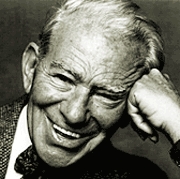
On this date in 1896, lyricist and social justice poet Edgar Yipsel (Yip) Harburg, known as “Broadway’s social conscience,” was born of Russian-Jewish immigrant parents. Raised in poverty on Manhattan’s Lower East Side, he later attended City College of New York, and struck up a lifelong friendship with classmate Ira Gershwin. Harburg began writing lyrics for Broadway revues in the 1930s, including the classic anthem of the depression, “Brother, Can You Spare a Dime?” (with composer Jay Gorney, 1932) and “April in Paris” (with Vernon Duke, 1932).
Harburg conceived and wrote lyrics for book musicals with political and social themes, including “Hooray for What!” (1937, with an anti-war theme, music by Harold Arlen) and “Bloomer Girl” (1944, feminist, anti-racist theme, music by Arlen). He co-wrote the book (with Fred Saidy) and wrote the lyrics for “Finian’s Rainbow” (1947, music by Burton Lane), which, despite its slyly subversive message, won the Henderson and George Jean Nathan Awards for Best Musical Comedy.
He called himself a “rebel by birth.” “The House of God never had much appeal for me. Anyhow, I found a substitute temple — the theatre,” Harburg said in Who Put the Rainbow in the Wizard of Oz? (1993). His most famous Hollywood work was in “The Wizard of Oz” (1939, music by Arlen) with his Academy Award-winning song, “Over the Rainbow.” In 1962 he and Arlen scored the animated feature “Gay Purr-ee” (featuring the voice of Judy Garland).
From 1951 to 1961 during the House Un-American Activities Committee investigations and the McCarthy hearings, Harburg was “blacklisted” for his political views from film, television and radio but kept working on Broadway. He wrote the lyrics to over 600 songs with a variety of composers, including: “It’s Only a Paper Moon” (1932, with Arlen), and “Happiness Is Just a Thing Called Joe” (1943, Arlen, from the film “Cabin in the Sky”). With Lane, he wrote “Old Devil Moon” and “How Are Things in Glocca Morra?” The team of Arlen and Harburg also wrote Groucho Marx’s signature song, “Lydia, the Tattooed Lady” (1939, from “At the Circus”).
His volume of satiric light verse, Rhymes for the Irreverent (1965), was reissued in 1999. A second volume, At This Point in Rhyme (1976) was reissued in 2000 under the title More Rhymes for the Irreverent. He died at age 84. For more detail, see Dan Barker’s excellent long essay “The Theater Was His Temple.” (D. 1981)
Do Unto Others?
—Harburg, "Rhymes for the Irreverent" (1965)
Love thy neighbor as thyself?
Hide that motto on the shelf!
Let it lie there, keep it idle
Especially if you’re suicidal.
Realist
For what we are about to receive,
Oh Lord, ’tis Thee we thank,
Said the Cannibal as he cut a slice
Of the missionary’s shank.
Barbara Leigh Smith Bodichon
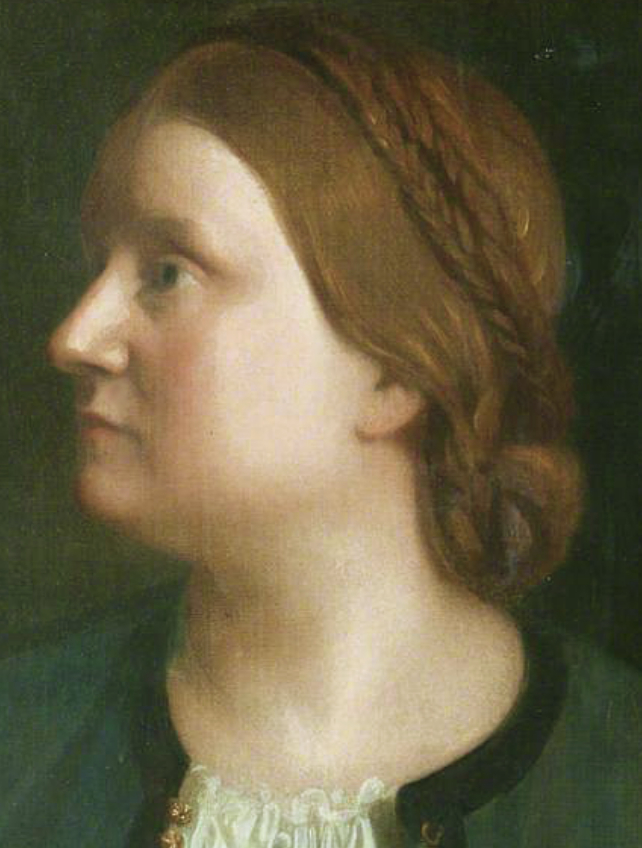
On this date in 1827, Barbara Leigh Smith (later Bodichon) was born in England. Her father was a dissenter, Universalist and benefactor to the poor. He had five children with a young milliner whom he never married, possibly out of principle. Barbara’s working class mother died young. The children grew up in an egalitarian home and Barbara received an inheritance at 21, just like her brothers. No college admitted women at the time, but she and a female friend took an unprecedented walking tour of Europe unchaperoned.
Barbara was a lifelong friend of novelist and freethinker George Eliot, who modeled “Romola” after her, and associated with many artists and intellectuals, including freethinker G.J. Holyoake. Barbara’s cousin Florence Nightingale snubbed her, evidently because of her “illegitimate” status. In 1854 she wrote a summary of laws concerning women, which became a major catalyst of the British feminist movement and resulted in the adoption of the Married Women’s Property Bill in 1857. She also petitioned Parliament for suffrage and was instrumental in the founding of Girton College in 1869, which admitted women. D. 1891.
“There was hardly a scheme for the furtherance of women’s interests that did not bear the imprint of her driving aspirations. The only exception lay in projects sponsored by any branch of Christianity, for though she was not an atheist she had her own reasons for keeping her distance from organised religion. ‘Ah! If you were only like Miss Barbara Smith!’ Dante Gabriel Rossetti wrote to his pious and retiring sister Christina.”
—Literary critic Dinah Birch, commenting on Bodichon, London Review of Books (October 1998)
Nell Newman
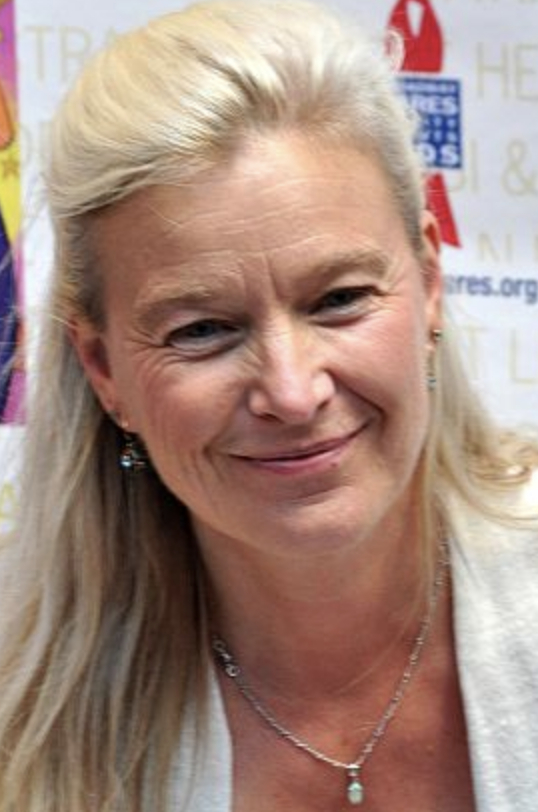
On this date in 1959, environmentalist, entrepreneur and philanthropist Elinor Teresa “Nell” Newman was born in New York City to actors Joanne Woodward and Paul Newman. She worked as a child actor under the name Nell Potts. She attended Putney School, a high school in Vermont established to spread progressive education, and earned a B.S. in human ecology at the College of Atlantic in Bar Harbor, Maine. Newman moved to California, where she served as the executive director of the Ventana Wilderness Sanctuary as well as the development director for the Santa Cruz Predatory Bird Research Group.
She worked for fundraising institutions until 1993. Her commitment to health and sustainable agriculture led her to convince her father to let her establish Newman’s Own Organics: The Second Generation as an organic division of his Newman’s Own line. Her first snack creation, Newman’s Own Organic pretzels, became the number-one food snack in America in its first year of production. She has created over 100 organic food products and compiled her thoughts about how to make a difference in life in her 2003 book The Newman’s Own Organics Guide to a Good Life: Simple Measures That Benefit You and the Place You Live.
In 2010 she started the Nell Newman Foundation, which awards grants in these core areas: environment, education, arts and culture, spiritual, scientific, human services, emergency relief, animal welfare and international affairs. The foundation “stands in solidarity with Black Lives Matter and seeks to further equity and social justice through its grant making.”
Newman is an admirer of freethinkers Walt Whitman and Edward Abbey, citing Abbey’s 1968 autobiographical “Desert Solitaire” as “very special to me.” (Life Productions, March 5, 2020) She received the Rachel Carson Award in 2014 from the National Audubon Society for her environmental leadership and was inducted into the Specialty Food Association’s Hall of Fame in 2017 and the Connecticut Women’s Hall of Fame in 2019.
She married Gary Irving, a native of Wales, in 2005 in California. They met when Newman bought a surfboard at Irving’s store. Julie Norris of the British Humanist Association conducted the service.
PHOTO: Newman at the 2011 Broadway Barks pet rescue benefit in New York City; Nick Step photo under CC 2.0.
“This is what you shall do: Love the earth and sun and the animals, despise riches, give alms to every one that asks, stand up for the stupid and crazy, devote your income and labor to others, hate tyrants, argue not concerning God, have patience and indulgence toward the people, take off your hat to nothing known or unknown or to any man or number of men …”
—Walt Whitman quote included on the Nell Newman Foundation's "Welcome" page
Joseph Cunningham
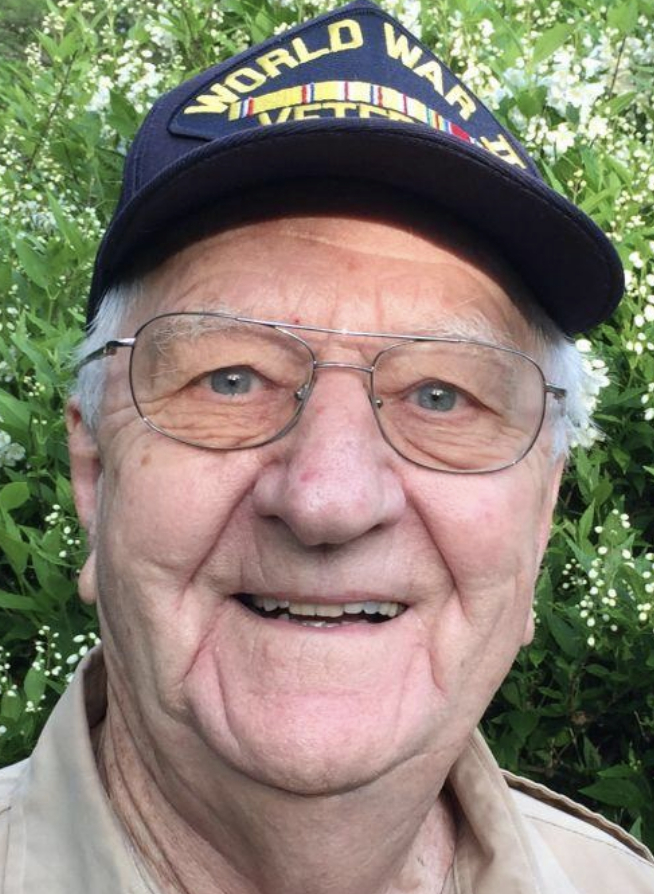
On this date in 1926, freethinking educator and military “foxhole atheist” Joseph Cunningham was born into a religious and financially struggling family near Wadestown, W. Va. (population 50). The family of eight moved to Oklahoma, then to Michigan, where they lived in an abandoned rural grocery store, and then to Illinois, where Cunningham graduated from high school in Carmi.
He enlisted in the U.S. Navy, serving in the Pacific aboard the attack transport USS Bosque. After World War II he received $65 a month from the G.I. Bill to attend Southern Illinois University, where he graduated with a major in history and minors in English and business.
He taught for two years in a one-room school without electricity. After earning his master’s from SIU he taught a wide variety of subjects at Mascoutah High School, where he met his future wife Norma Steines Cunningham, also a teacher and religious skeptic. They married in 1953 and had two daughters, Kathryn and Linda, who were raised in a secular environment. The Cunninghams were married for 64 years until her death in 2018 at age 100.
Cunningham served on FFRF’s executive board of directors for 38 years. As a veteran, he was also very involved with bringing FFRF’s Atheists in Foxholes monument to fruition in Madison, Wis.
Another project he took up after retirement was the planting of thousands of daffodils along Illinois Route 4. And since they are perennials, the thousands have turned into millions. He was honored nationally on Earth Day in 2015 for his green thumb and by the city of Mascoutah and the Federated Garden Clubs of Missouri and Illinois.
“Oh that I could have become a freethinker earlier in life,” Cunningham said in a 2019 email. “I spent many a sleepless night thinking the world would end at any second and that possibly I would end up in a never-ending, burning hell because I had accidentally done something that an angry god disapproved.”
“Any good that I can do, let me do it now, for I shall not pass this way again.”
—Cunningham's quote to live by (October 2019 email)
Craig Mazin
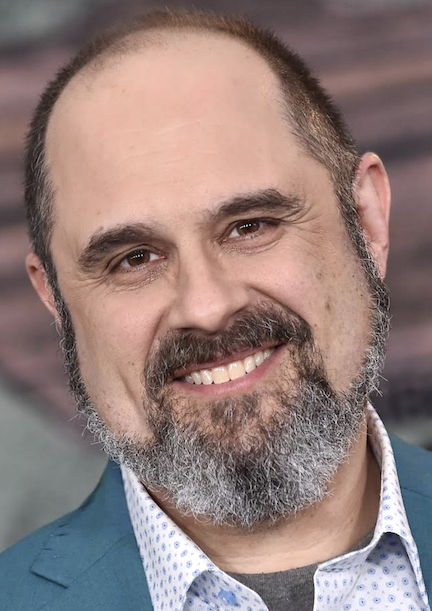
On this date in 1971, scriptwriter and film director Craig Mazin was born in Brooklyn, N.Y., to parents of Ashkenazi Jewish descent, Elaine and Leonard Mazin. In a 2019 podcast he described himself as “the goofy guy, the yelly Jew.” The movie that made him “truly love” film comedy was “Airplane” when he was 9.
He grew up on Staten Island and in central New Jersey before graduating in 1992 from Princeton University. In his freshman year, future U.S. senator Ted Cruz was his roommate, whom he holds in extremely low regard, then and especially now. “You’re a United States Senator, @tedcruz. Stop shitting out of your mouth and do your job with dignity oh who am I kidding you’ve been this pathetic since 1988, and you will remain this pathetic until you’re gone.” (Mazin tweet, June 15, 2020)
He majored in neuropsychology, with an eye toward a neurosurgery career. “But during college, I realized that while I was fascinated by medicine, I loved being creative and entertaining people. So I gave myself a shot.” Having their son “chase a Hollywood dream” did not excite his parents, who both taught in public schools. “I didn’t have any money, didn’t know a soul in L.A., just jumped in and hoped,” Mazin later wrote.(screenwriting forum on reddit, March 1, 2014)
He landed at Walt Disney Pictures and worked as a marketing executive on movies such as “The Santa Clause” and “Crimson Tide.” His screenwriting career started in 1997 with “RocketMan.” He wrote or co-wrote two “Scary Movie” sequels and two “Hangover” sequels and directed the superhero film “The Specials” (2000) and the 2008 spoof “Superhero Movie.”
Mazin ran a website with Ted Elliott called The Artful Writer from 2005-11, then started the weekly podcast Scriptnotes with John August (584 episodes as of Jan. 31, 2023). In one episode, he comments that screenwriters have to be sadists at times to create conflict and a good story: “As a writer, you are not the New Testament God who turns water into wine. You are the Old Testament God who tortures Job because, I don’t know, it seems like fun.” (The Spectator magazine, May 2, 2020)
“[W]e feel narratively like we have to see people torn apart. And this goes all the way back to the bible … the story of Job,” Mazin said in another episode. “I should mention I don’t believe in anything in the bible. However, the bible is evidence of something. And it is evidence I think of deep-seated instinctive narrative patterns in the human mind. They are expressions of these things that are in us. They are not always sensible or logical, but they are there.” (Scriptnotes episode 378, Aug. 13, 2021)
He created and wrote the critically acclaimed, five-part HBO series “Chernobyl” in 2019. It won several Primetime Emmy and Golden Globe awards. He was hired in 2020 to co-write and co-produce a TV adaptation for HBO of the video game “The Last of Us,” a nine-episode, post-apocalyptic drama which debuted Jan. 15, 2023. By March, the first five episodes averaged almost 30 million viewers. It was renewed in January 2023 for a second season.
He and his wife Melissa live in Southern California and have two children, Jack and Jessica.
PHOTO: Mazin at “The Last of Us” premiere in January 2023 in Westwood, Calif.; photo by DFree via Shutterstock
“I believe very strongly in the separation of church and state not only because it’s important to protect people who are of religious minorities, but because religion doesn’t do a good job of running a state.”
—Mazin, discussing “When We Are in Need," Episode 8 of "The Last of Us" (March 5, 2023)
